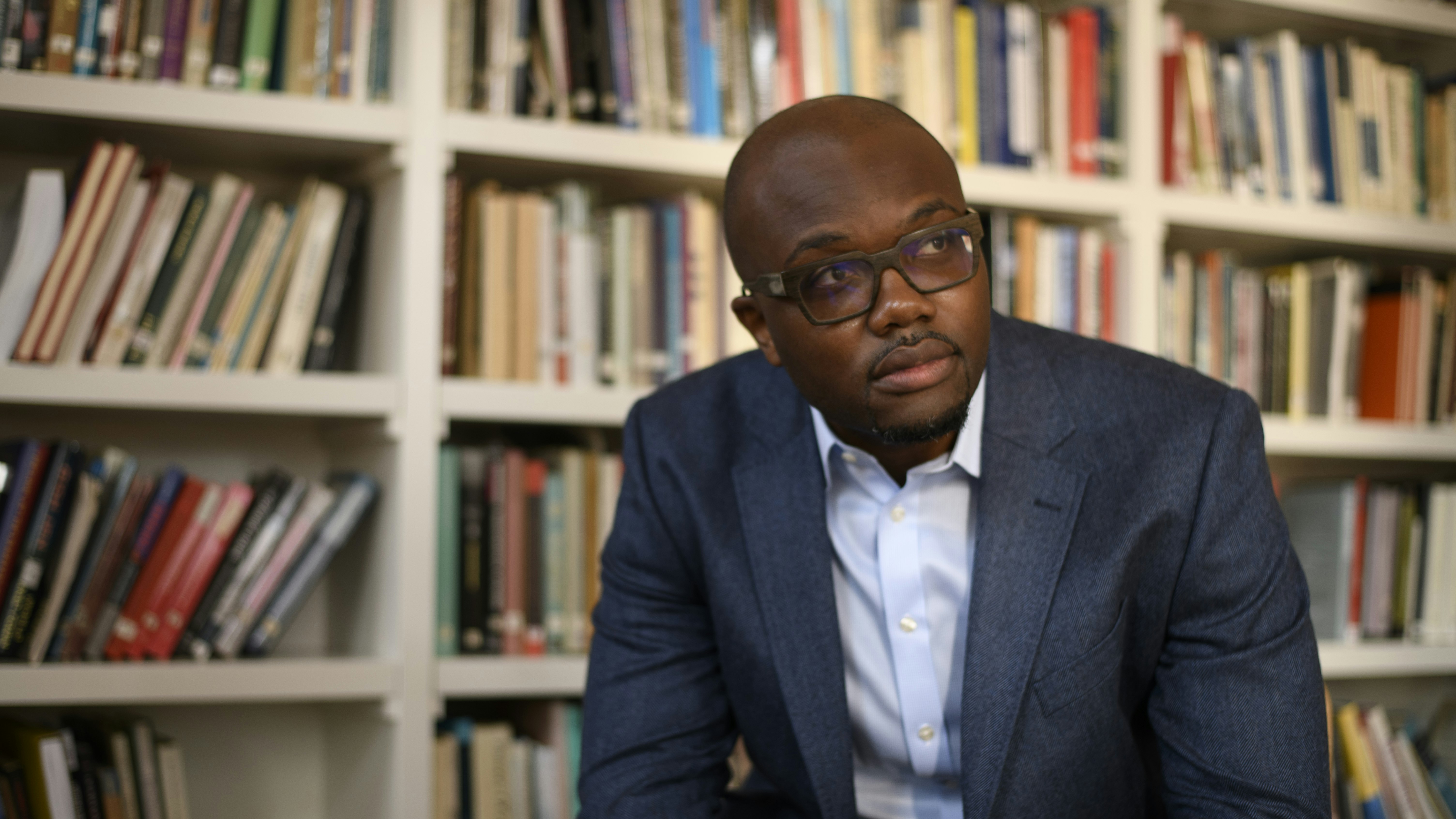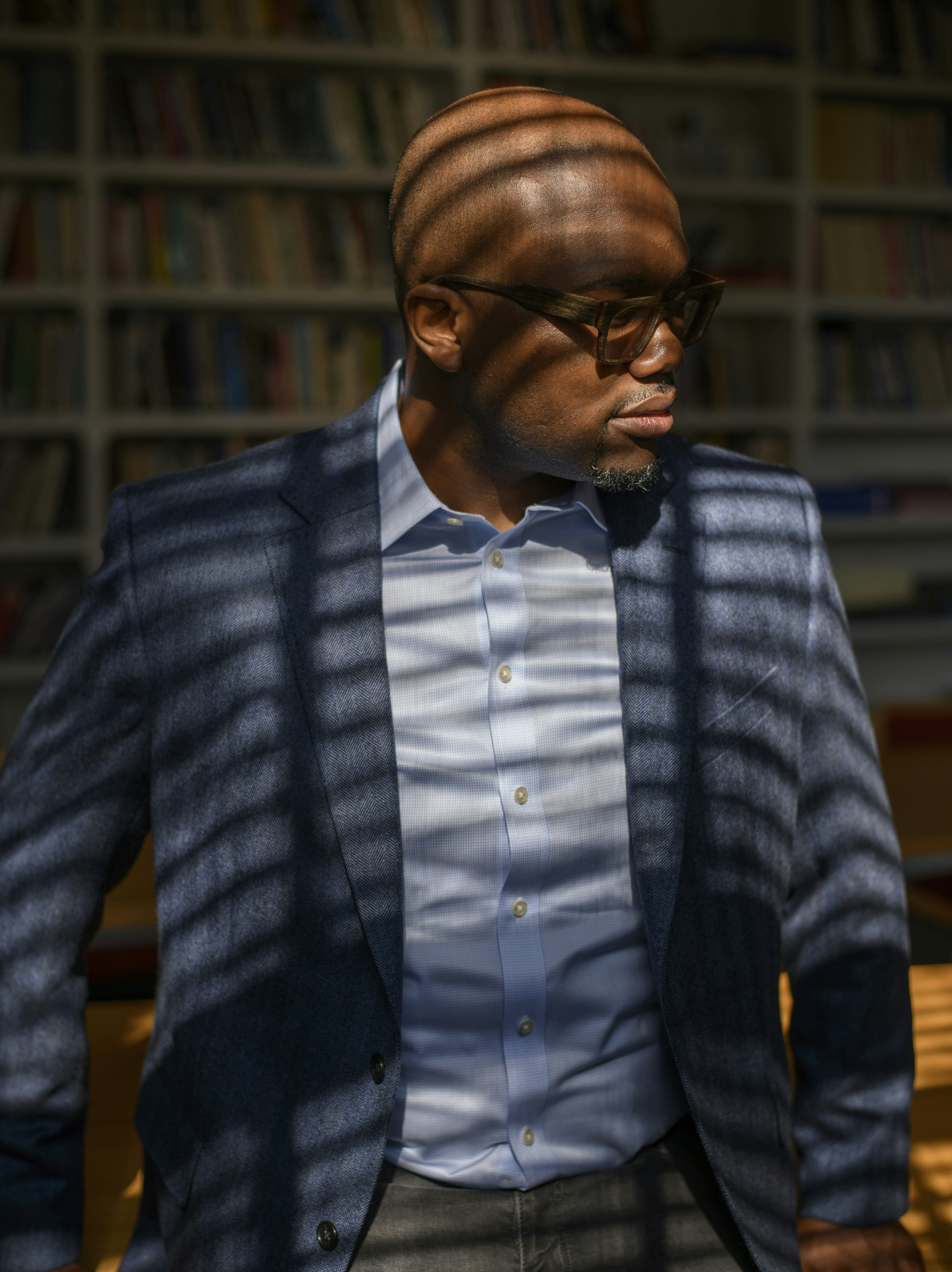What If We’re Telling the Wrong Story about Climate Change?

Chika Okafor’s research merges economics with educational psychology to understand how the methods we use to communicate about important issues influence public action.
In recent years, the news has been filled with a seemingly endless stream of articles about the negative effects of climate change: extreme temperatures, flooding, increasingly destructive hurricanes, lost crops, and much more. Engaging with this influx of negative material can be intimidating and demoralizing. It can even lead to the impression that the climate crisis is just too big of a problem to solve and that, therefore, it’s not worth trying.
Repeated exposure to disaster coverage may also lead to “crisis fatigue,” a burnout response to prolonged stress resulting from difficult situations. This phenomenon has been well-documented with respect to the COVID-19 pandemic, and researchers have also linked it to climate change. Over time, those experiencing crisis fatigue can develop psychological trauma. So what can we do differently?
According to Chika Okafor, the 2023–2024 Edna Newman Shapiro, Class of 1936, and Robert Newman Shapiro, Class of 1972, Graduate Student Fellow at Harvard Radcliffe Institute, climate disaster stories employ what’s called a “deficit-based approach” to communication, which might be problematic when it comes to mobilizing support to fight climate change.
Educational psychology, a field of study that is often drawn on in the context of teaching students who come from challenging backgrounds, defines two different approaches to instruction: the deficit-based approach and the asset-based approach. In basic terms, the deficit-based approach emphasizes the problems that students are facing, while the asset-based approach focuses on students’ strengths and the opportunities available to them. Imagine your teacher says to you, “If you fail this exam, you won’t be able to get into college.” How does that make you feel? Now imagine she says, instead, “If you pass this exam, you’ll have a better chance of getting into your dream school.”
The problem with the deficit-based approach, says Okafor—who is also the inaugural fellow in law and political economy at Harvard Law School and a PhD candidate in Harvard’s Department of Economics—is it can create a “self-fulfilling prophecy, where students may not elevate beyond the lowered expectations of their instructors.” In contrast, educational psychology researchers have shown that an asset-based approach can be used to enable students to overcome the barriers they face.
Okafor was born and raised in Chicago, the son of two Nigerian immigrants and the youngest of four children. Growing up, Okafor’s father instilled in him the idea that “education is arming yourself to the teeth.” Education allowed his father to escape extreme poverty in southeastern Nigeria, immigrate to the United States, and raise his family there.

Photo by Tony Rinaldo
After college (and a brief stint in consulting), Okafor returned to Chicago to work in the public school system. He recalls roaming the halls of Paul Robeson High School, in the South Side of Chicago, and thinking that, in some ways, the school resembled a prison—police cars remained permanently parked outside, metal grates were used to control the flow of adolescents, and a police chopper hovered overhead while students were released at the end of the school day.
For Okafor, the experience was so impactful that he decided to continue arming himself, first by enrolling at Yale Law School and then in Harvard’s economics PhD program. He saw law and economics as two powerful means to make progress on some of the complex social and economic issues he had witnessed play out at Robeson and elsewhere.
Okafor’s doctoral project is expansive and ambitious, addressing several major social and economic problems, including economic inequality, rising incarceration rates, and, of course, climate change. What unites these disparate chapters is the application of economic theory and experimental methods, along with econometric techniques, to better understand important issues.
Okafor chose climate change for the third and final chapter, and the focus of his time at Radcliffe, because it’s “the 800-pound gorilla in the room that will make just about every index of inequality wider and significantly impact the people who are already most vulnerable in our society.”
Drawing on lessons learned from working in education, and inspired by the New York Times interactive children’s guide “Bad Future, Better Future,” Okafor designed an experiment to test the public’s response to deficit-based and asset-based approaches to instructional materials.
First, he worked with a multimedia design team to develop two versions of an educational video on climate change: one that relies on a deficit-based approach and one that relies on an asset-based approach. Next, Okafor devised a survey to record respondents’ reactions upon exposure to either the deficit-based video, the asset-based video, or both, and he administered it to 2,500 participants across the United States.
Okafor is currently in the process of collecting and analyzing the survey results, which he will use to assess the videos’ impact on climate change beliefs, attitudes, and behaviors. Through the surveys, he also collected data on demographic characteristics such as race, gender, and income—data that he hopes will shed light on the extent to which these characteristics might influence ideas and behaviors regarding climate change.
“What I’m trying to see in my research is if there is a different way of talking about climate change that could have a much greater impact on generating the amount of public support that is required to mitigate the worst effects,” says Okafor.
Following his line of reasoning, we must question our approaches to talking and writing about climate change if we want to maximize the impact of our words. What if we were to shift the focus of our climate-related reporting toward a more solution-oriented perspective? What implications would this shift in communication strategy have as far as motivating public action?
Importantly, deploying an asset-based approach does not necessitate minimizing hardship. The point is not to gloss over or obscure challenges but, rather, to acknowledge them and figure out how to address them.
In the context of news reporting, this might look like increasing the number of stories about how to reduce environmental degradation, cut greenhouse gas emissions, and mitigate the consequences of climate change, without reducing the level of coverage on climate disasters. Disaster stories are important insofar as they elicit an emotional response and underscore the importance of taking action. But they don’t tell us how to act, which can lead to a sense of helplessness.
We might also add sections with possible solutions to stories about climate-related issues. There are many approaches, but the key is to emphasize opportunities for progress, to avoid painting a picture of such doom that our audience simply gives up and tunes out.
That education is a powerful tool may be a truism, but Okafor’s story bears it out. “When I was growing up, I thought that arming yourself to the teeth meant doing so for yourself, to escape or stave off poverty or unequal opportunities, or to shore up financial security” he reflects. “But through this journey toward a PhD, I more deeply understand the extent to which education can be arming yourself in service of others, particularly those who are most vulnerable.”
Sam Zuniga-Levy is a writer at Harvard Radcliffe Institute.







